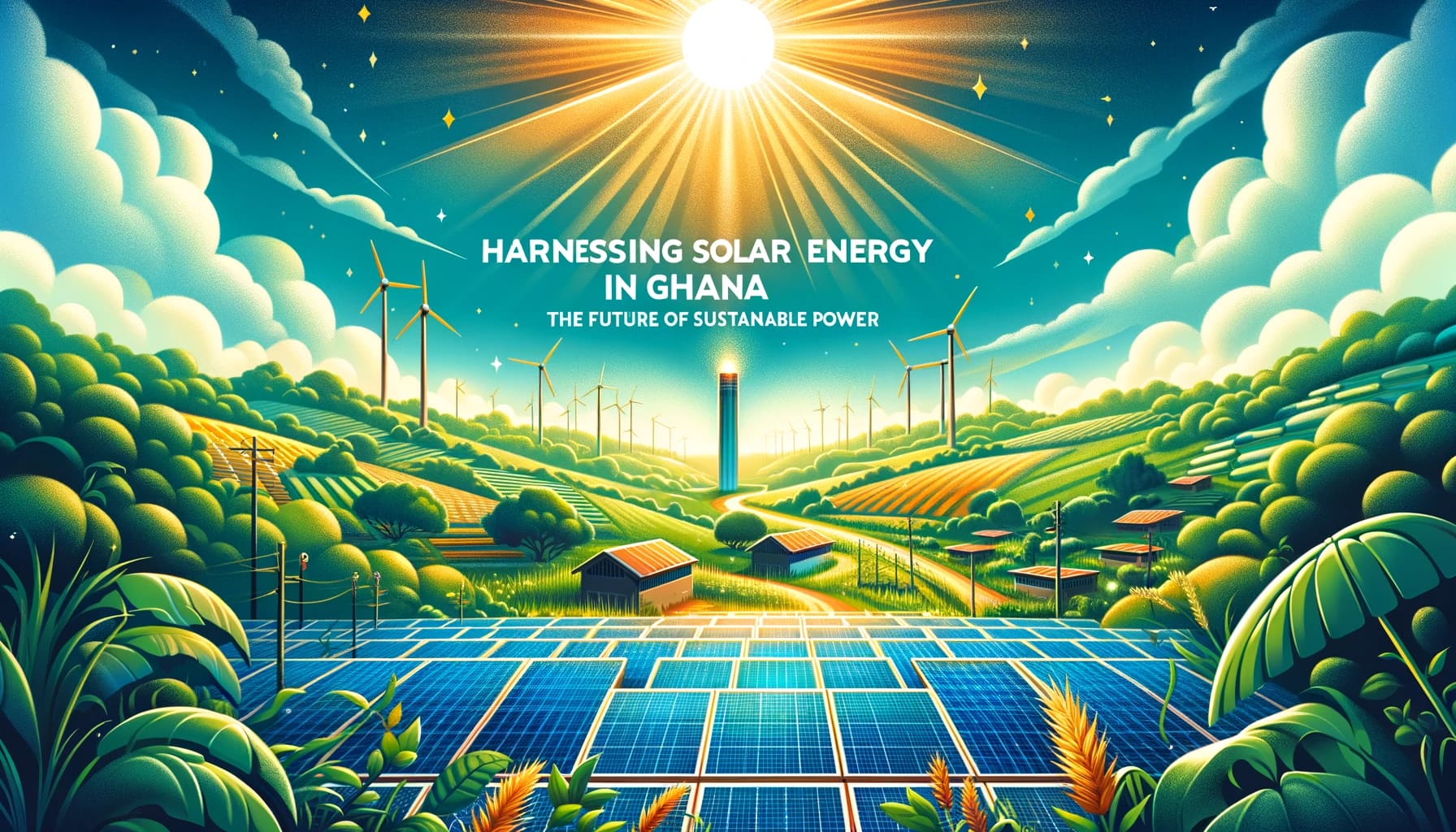
Harnessing Solar Energy in Ghana: The Future of Sustainable Power
In the heart of West Africa, Ghana is emerging as a leader in a solar revolution that promises to redefine its energy landscape and pave the way for a sustainable future. This article embarks on a journey through Ghana’s transformative approach to energy, where the sun’s boundless energy is not just an alternative, but a cornerstone of national development. From the verdant expanses of the Volta Region to the dynamic urban centres like Accra, solar panels are more than just infrastructure; they are symbols of hope, progress, and a commitment to a cleaner, greener world.
As we explore the strides Ghana is making in solar energy adoption, we uncover the intricate tapestry of challenges and opportunities that shape this solar narrative. This exploration is not just about technology; it’s a story of resilience, innovation, and the vision of a nation poised to harness the immense power of the sun to illuminate its path forward. Join us as we delve into the details of Ghana’s commitment to sustainable energy and its impactful journey towards a brighter, solar-powered future.
The Current Energy Landscape in Ghana
Ghana’s journey towards sustainable power is marked by significant strides and challenges. With an installed capacity of 5,134 Megawatts, thermal generation, fuelled by natural gas, light crude oil, and diesel, accounts for 66% of the country’s power generation, with hydroelectricity making up 33%. 1Despite these capacities, Ghana faces challenges such as financial deficits in the energy sector and high power costs, which impact the country’s economic development.
Renewable Energy on the Rise
In the realm of renewable energy, Ghana is making commendable progress. The current renewable energy generation is estimated at 152 Gigawatt-hours, with sources including solar farms and other solar facilities. This development aligns with the government’s initiative to issue licenses for renewable energy generation, encouraging private and public entities to develop sustainable projects.

Ghana’s Renewable Energy Master Plan, launched in 2019, sets ambitious goals. By 2030, the plan aims to increase the share of renewable energy from 42.5 MW in 2015 to 1,363.63 MW, with a significant portion from grid-connected systems. The plan also focuses on biomass for thermal energy and decentralized electrification in off-grid communities, promoting local manufacturing in the renewable energy industry.
Future Projections and Opportunities
Ghana’s roadmap includes procuring additional generation capacity and diversifying its energy mix with wind power and solar parks. The government is also incentivising the renewable energy sector to attract manufacturers and operators. This strategy aligns with the need for innovative energy solutions, such as solar-powered street lights and energy-monitoring equipment, which are crucial for both urban and remote communities.
The future of sustainable power in Ghana looks bright with solar energy at its core. The government’s commitment to renewable energy, combined with technological advancements and strategic planning, paves the way for a greener and more sustainable Ghana. As Suka Solar and other industry players contribute to this vision, the country stands on the cusp of an energy revolution, promising a cleaner, more efficient, and self-sustaining future.
Are you inspired to join the renewable energy revolution? Take the first step by exploring our range of solar solutions today and power your world with sustainable energy!
Visit our our product catalog and learn more about how you can transition to clean and cost-effective energy solutions. Whether you are an individual homeowner, a business owner, or a community organisation, we have the perfect solution for you.
If you have any specific requirements or would like a personalised quotation, our team of experts is ready to assist you. Feel free to reach out to us through our contact page or give us a call. We are here to support you on your journey to a greener and more sustainable future.
Together, let’s embrace the power of renewable energy and contribute to a cleaner, brighter, and more prosperous world.
